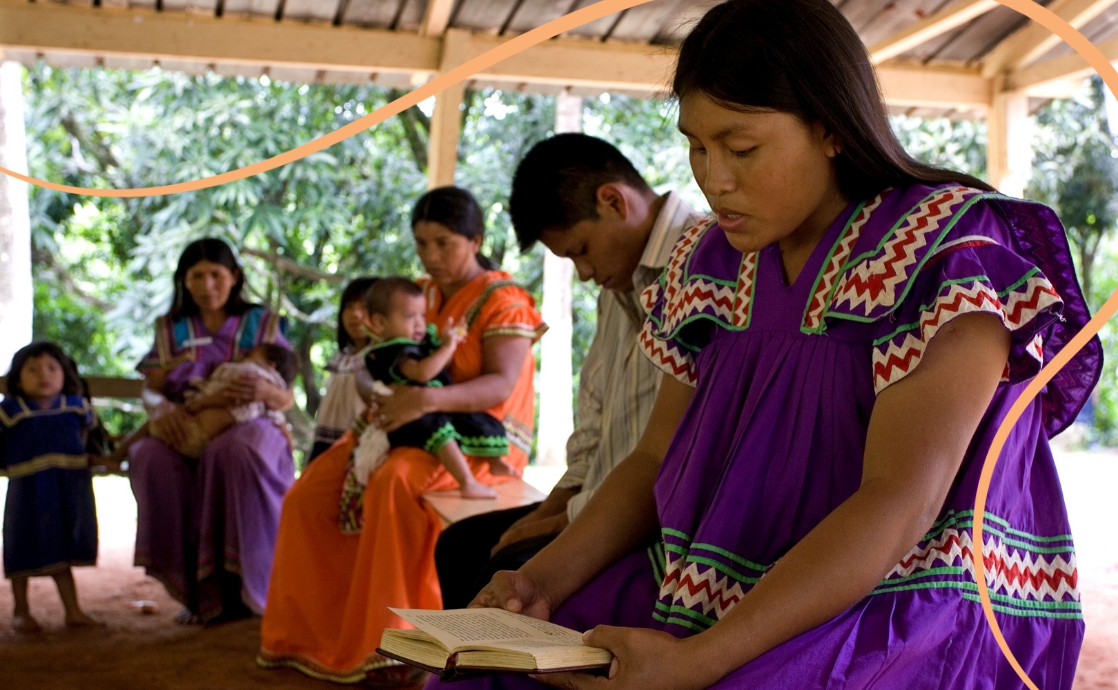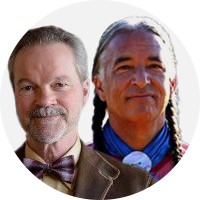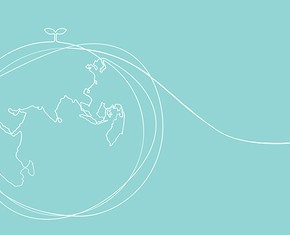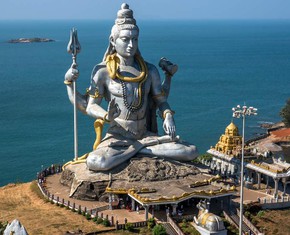The views expressed in our content reflect individual perspectives and do not represent the authoritative views of the Baha'i Faith.
The noble Indigenous Ngöbe-Buglé people of Panama and Costa Rica, once called the “Guaymi” tribe, received a promise from their prophet Uli-kron: that he would return one day.
These kinds of prophetic promises, the Baha’i teachings say, are common to all religious traditions. Baha’u’llah, in his “Book of Certitude,” explained this concept of progressive revelation:
It is clear and evident to thee that all the Prophets are the Temples of the Cause of God, Who have appeared clothed in divers attire. If thou wilt observe with discriminating eyes, thou wilt behold them all abiding in the same tabernacle, soaring in the same heaven, seated upon the same throne, uttering the same speech, and proclaiming the same Faith. Such is the unity of those Essences of being, those Luminaries of infinite and immeasurable splendour. Wherefore, should one of these Manifestations of Holiness proclaim saying: “I am the return of all the Prophets,” He verily speaketh the truth. In like manner, in every subsequent Revelation, the return of the former Revelation is a fact, the truth of which is firmly established.
RELATED: How Baha’is Promote the Recognition of Indigenous Beliefs
In his ground-breaking book on Indigenous belief systems, “Voices of Earth and Sky: The Vision Life of the Native Americans,” author and naturalist Vinson Brown quotes this translation of a sacred song (“They sing”) of the Ngöbe-Buglé people:
The Ulikron
They sing:
The Ulikron, Ngobo Ulikron (Ulikron means the orphan of the Virgin) traveled from the north, the far, far north, the cold, cold north. He talked to stout little men, to tall red men, to men in huts, to men in tall houses made of stone, to men who make broad roads and wear fine soft clothes, and pearls and silver and gold, to men who look like the sun in their dress and wisdom and might. Yes, the Ulikron passed among them long, long ago and told the men to be good, to do good, to love good. The Ulikron passed and talked; the Ulikron was lovely; his eyes were soft and seeing; his eyes saw through men; the Ulikron’s eyes saw and saw and saw, and men looked on and wept and stopped their wars; they stopped their hate; their bows and arrows shot the deer, but never man again; and long they walked the Ulikron way and talked of him till one great chief began to war and build big houses of stone. Yes, the Ulikron went down to the end of the earth. He went to the far south and talked. He saw the land of gold and the land of great waters and great stone houses and men who dressed in gold and soft clothes and built long roads – men of great wisdom born of the stars.
The Ulikron pointed to the stars. He talked of the Meselen (the Crab), the Tolen (the Plough), the Men (the Great Bear). He talked of the God above those stars, and he told men to be good and that He would come again for all good men; and men begun to be good.
All Indians wait for the “Ulikron.” – Ephraim S. Alphonse, “Guaymí Grammar and Dictionary: With Some Ethnological Notes,” Bureau of American Ethnology Bulletin, Volume 162: p. 125.
Christopher Buck: Kevin, here it says that “All Indians wait for the ‘Ulikron’.” This belief presumably looks forward to the return of the Ulikron (or “Uli-Kron”) someday in the future. Would you please explain to our readers how Baha’u’llah could well be regarded as the fulfillment of this Indigenous prophecy — when the “future” is now the recent past, continuing to unfold in the present?
Kevin Locke: Sure, Chris. All of the divine messengers planted the seed of expectation in the hearts of their followers. This millennial expectation is a universal feature of the “Call of God” all over the planet. Throughout the Indigenous areas of the Western Hemisphere, during the lifetime of Baha’u’llah, many ardently strived to discern the voice of God that they knew was reverberating throughout creation. Assuredly Uli-Kron would have set his followers’ sights upon a day of fulfillment when all of the divine promises would be realized.
CB: Kevin, in your autobiography, “Arising,” you wrote about an outstanding presentation by an Indigenous Baha’i from the Ngöbe-Buglé (Guaymi) of Western Panama at the Baha’i World Congress in New York in 1992:
The most notable session for me featured a man named Juan Bejarano from the Guaymi tribe in Panama. His humble posture and sense of devotion exemplified the words of Abdu’l-Baha – that if Native peoples received education and were properly guided, they would become so enlightened through the divine teachings that the whole world would become illumined.
“Good morning, dear Baha’i sisters and brothers,” Juan addressed the audience, “… it is a privilege for the Guaymi people to receive the beautiful message of Baha’u’llah, and at this time, I take this opportunity to address you. The most important thing I have to tell you is that the Guaymi People have embraced the Cause of Baha’u’llah and want to be obedient to His Teachings. That is why we want to be faithful to the administrative institutions of the Baha’i Faith, the Local Spiritual Assemblies, the National Spiritual Assembly, and the Universal House of Justice – God’s infallible institution. With their guidance, social economic development projects are being established, such as Baha’i Radio, the Guaymi Cultural Center, and the Schools for the Education of Children. With the institutions’ guidance, we are developing deepening programs, literacy programs, women’s conferences, native councils, teaching projects, and others. Through these programs, we have been achieving a transformative effect in the area, to help balance the quality of the spiritual life of the Guaymi people. These positive examples demonstrate that, little by little, we are coming to understand the Covenant of Baha’u’llah and are trying to serve Him. What more can this humble people do, but be the instrument of Baha’u’llah? Thank you very much.”
As I listened to this presentation, I felt some envy. This tribe had experienced true progress – and I longed for the same changes to occur in my home community and throughout the tribes of North America.
CB: Kevin, can you tell us more about how the Ngöbe-Buglé are now fulfilling this historic and history-making prophecy of Abdu’l-Baha, made on April 8, 1916, with a special focus on Panama?:
Attach great importance to the indigenous population of America. … Likewise, these Indians, should they be educated and guided, there can be no doubt that they will become so illumined as to enlighten the whole world.
RELATED: Voices of Earth and Sky – Discovering Indigenous Holy Ones
All the above countries have importance, but especially the Republic of Panama, wherein the Atlantic and Pacific Oceans come together through the Panama Canal. It is a center for travel and passage from America to other continents of the world, and in the future it will gain most great importance.
KL: These two passages from Abdu’l-Baha could be interrelated. The first one, from the “Tablet to Amir Khan” – in which Abdu’l-Baha assures us that the “Call of God” was “undoubtedly” raised in the Americas in ancient times – relates beautifully to the promise, in the second quote, from the “Tablets of the Divine Plan,” that “there can be no doubt that they will become so illumined as to enlighten the whole world.”
I believe that the Indigenous peoples of Central America – Panama, in particular – offer a good example of what the Universal House of Justice refers to, in this excerpt from a 2002 message:
Indeed, the purpose of the coming of Baha’u’llah is to lift the yoke of oppression from his loved ones, to liberate all the people of the world, and to provide the means for their abiding happiness. In this regard, the Tablets of the Divine Plan addressed by Abdu’l-Baha to North America make it clear that the destiny of the native Americans as an illumined and fulfilled people is linked to the quality of their response to the Revelation of Baha’u’llah.
Briefly, the Indigenous people of North, South, and Central America have a great deal of spiritual capacity, and the Baha’i teachings make it perfectly clear what that capacity can do!
















Comments
Sign in or create an account
Continue with Googleor